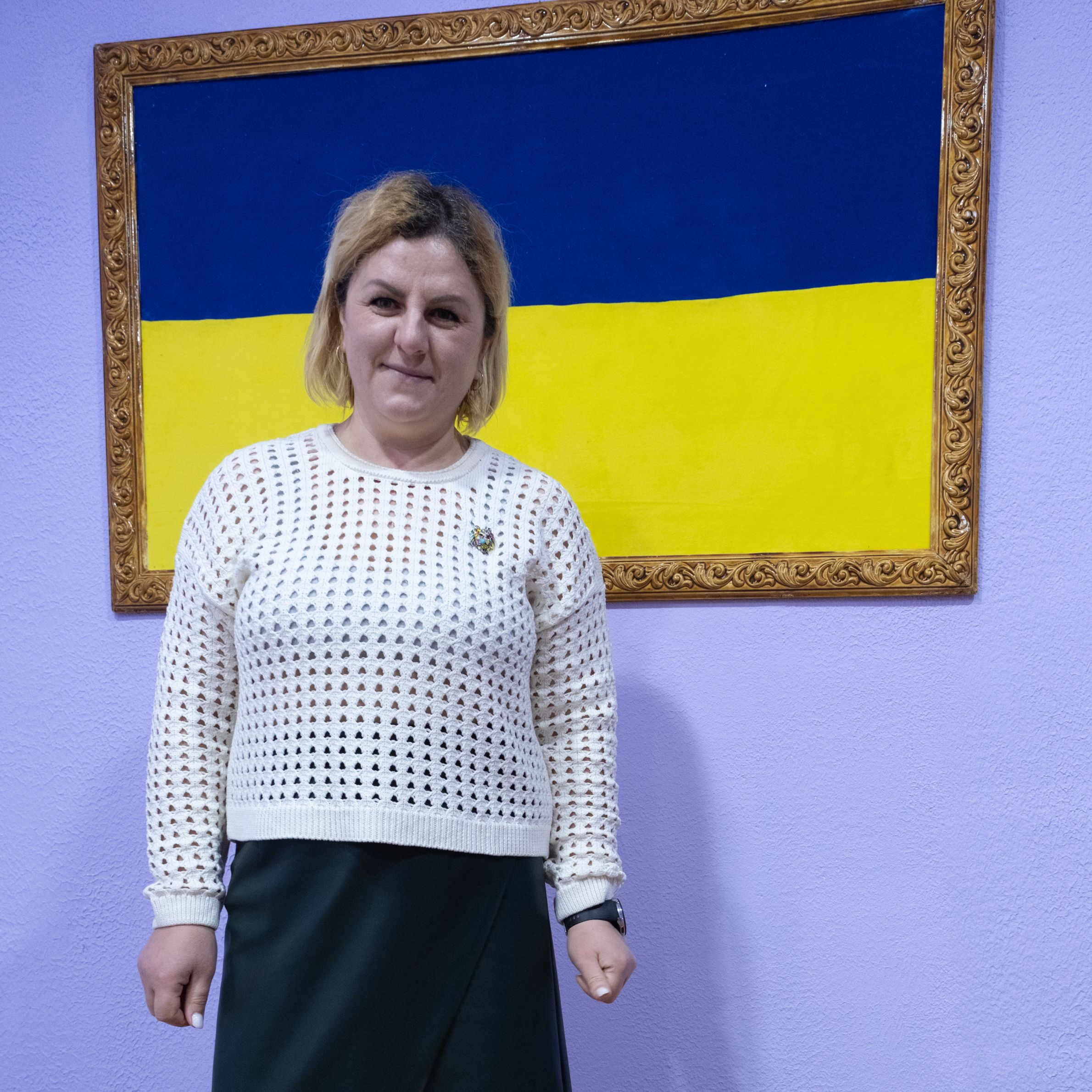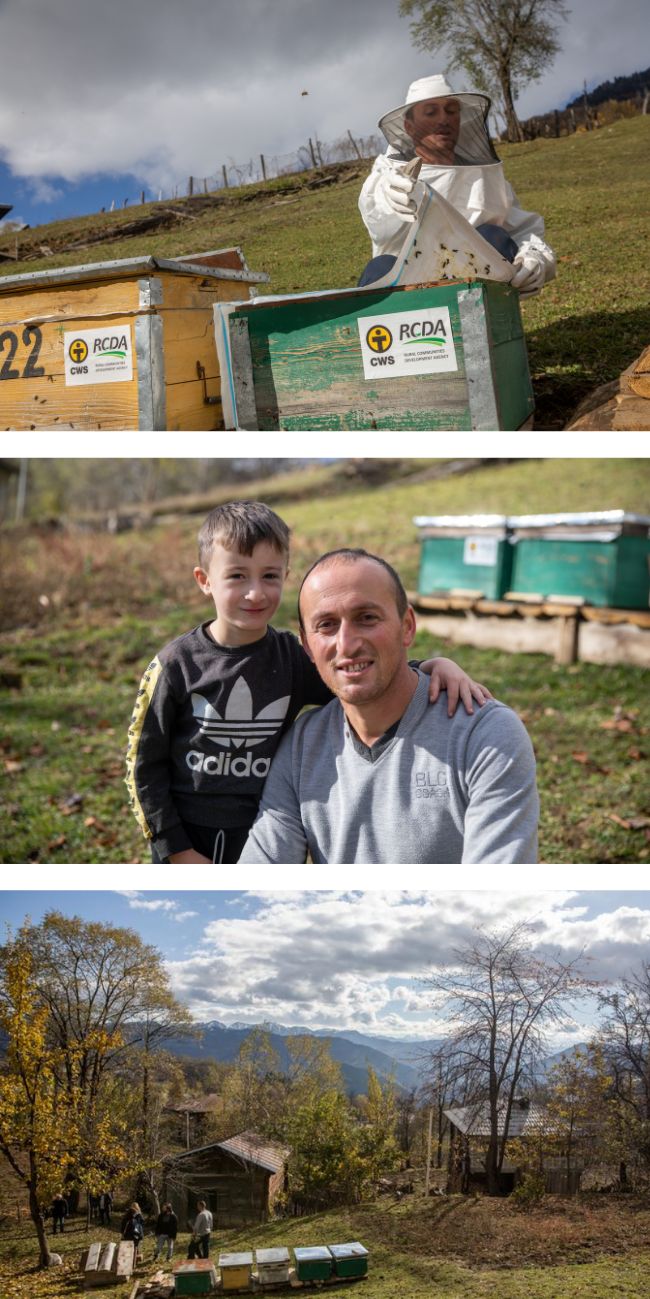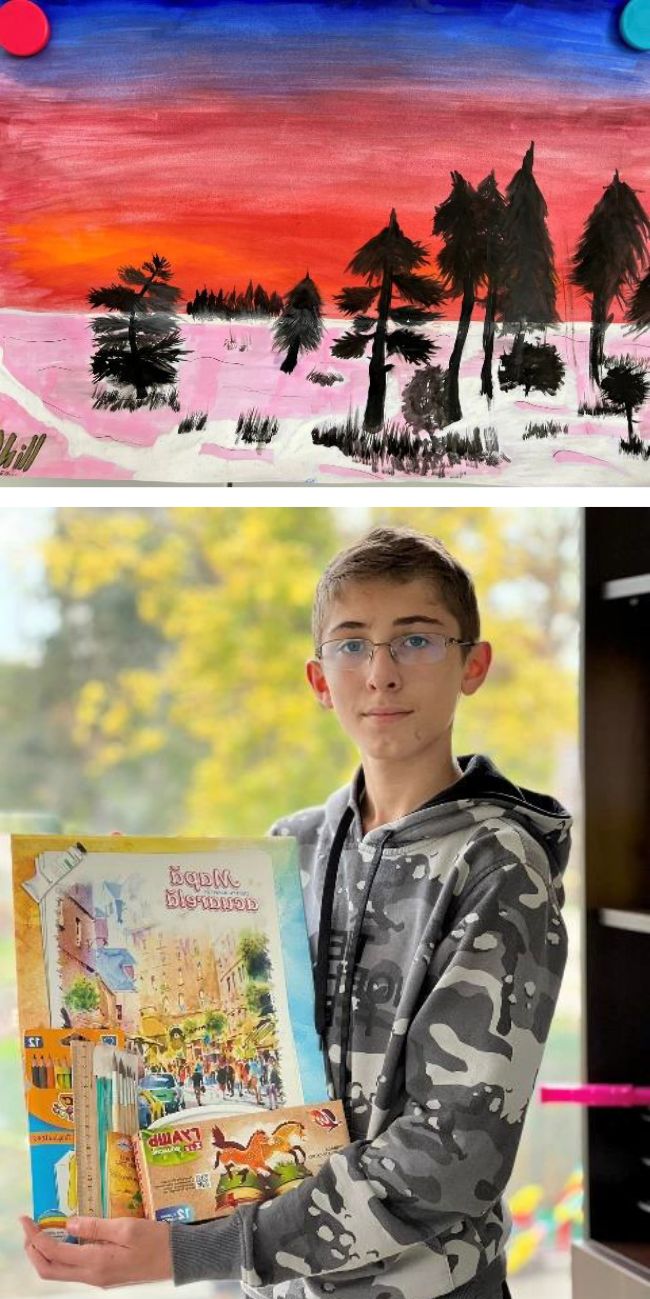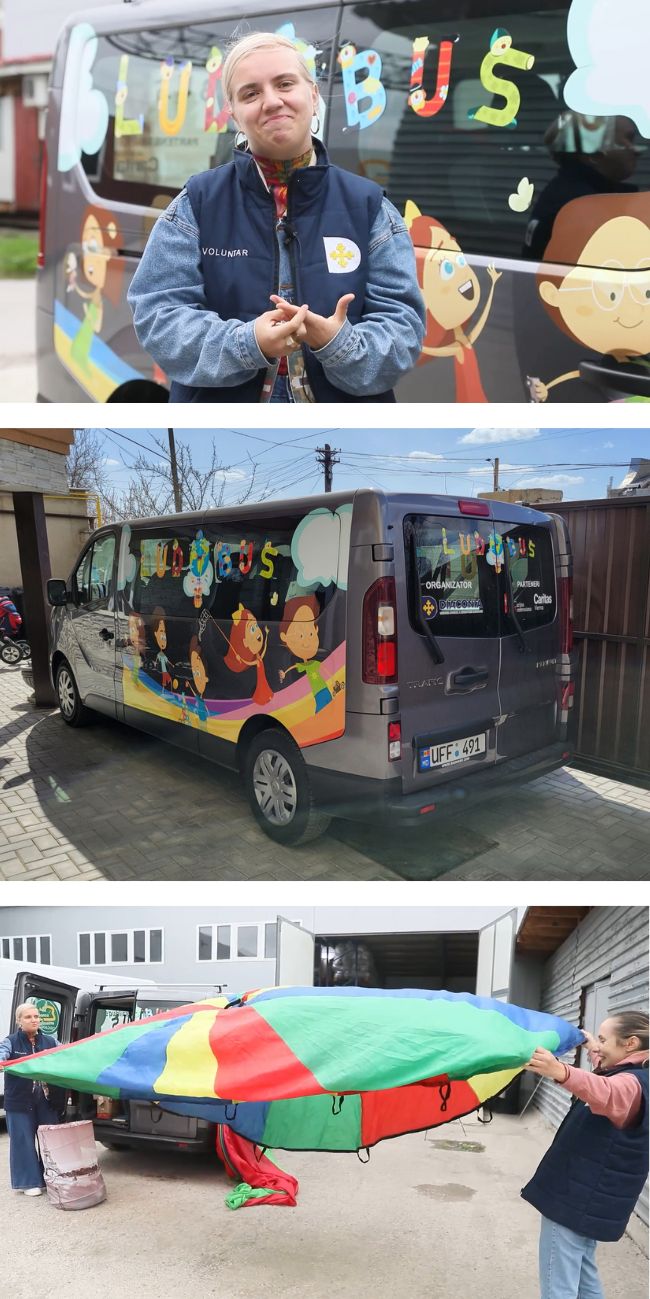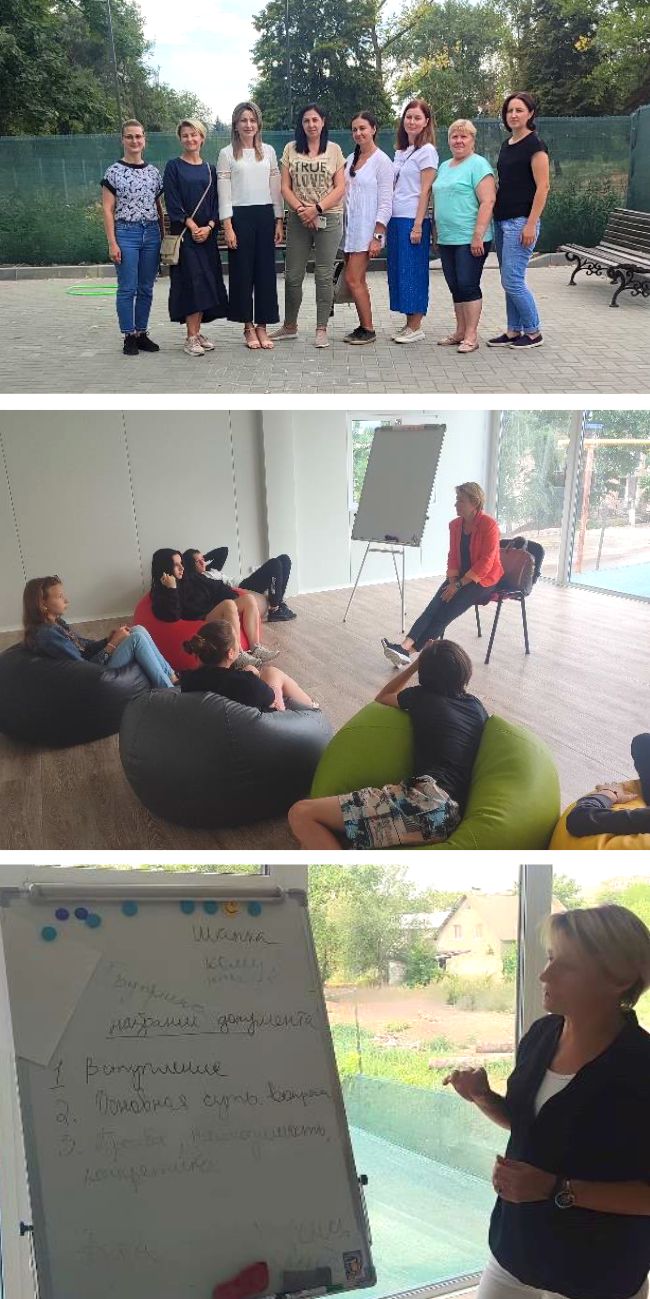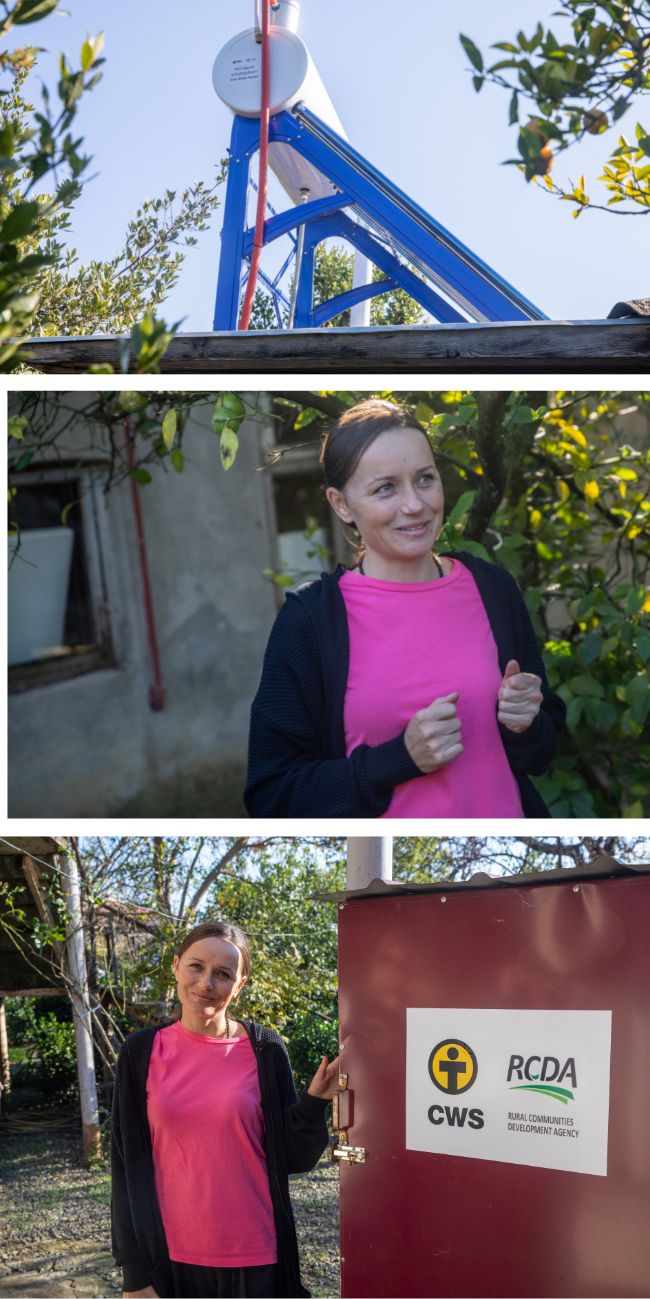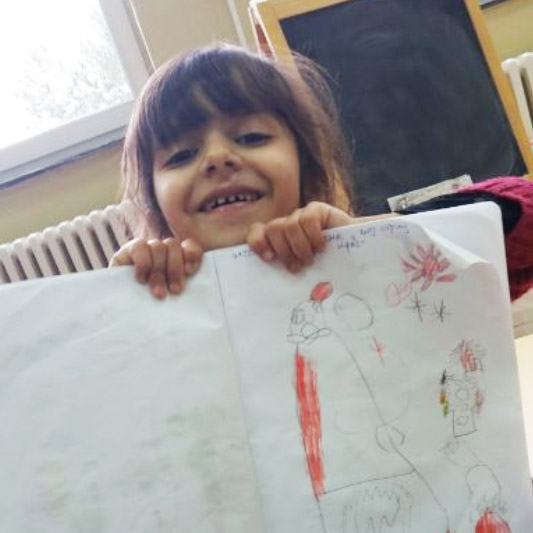Temperatures are dropping in the European nation of Moldova. Each night is a little longer than the one before it, and the first snowflakes of winter will be here soon. Sadly, most indicators show that it will likely be a long, hard winter in Moldova this year. Energy dependence and poverty have long taken a toll here. The International Energy …
Stories of Change
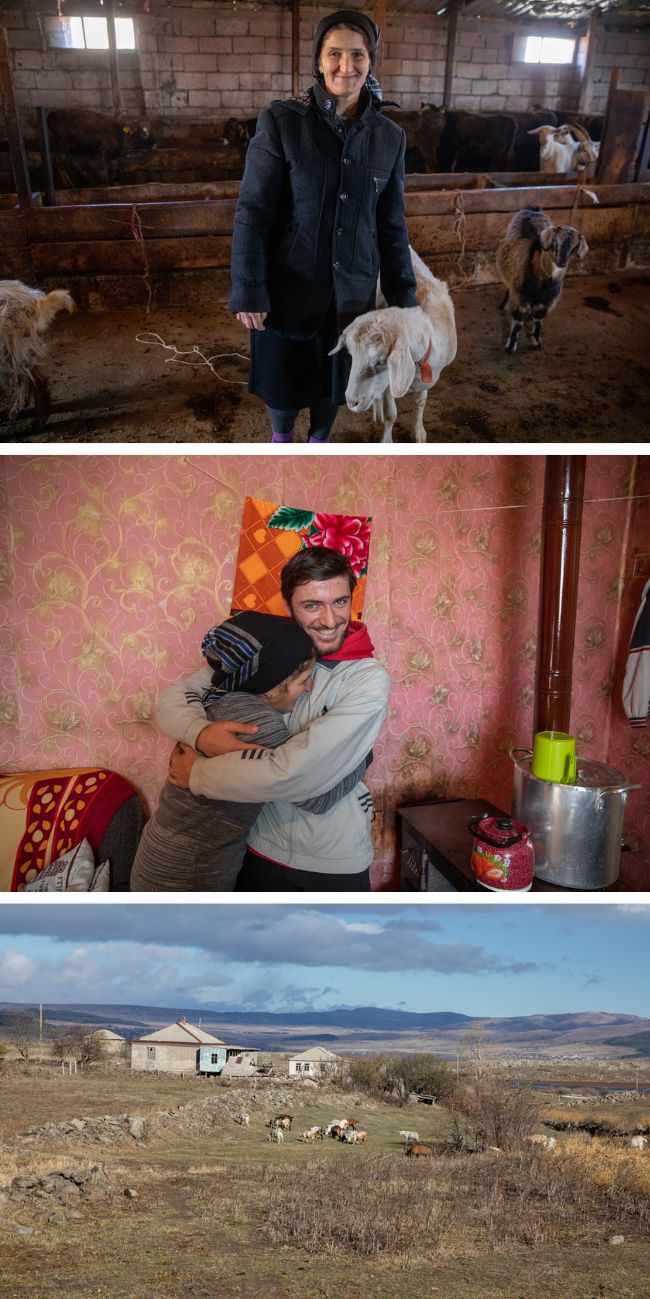
Top: Fati and her goats, Middle: Fati and Gia next to their fuel efficient stove stove (right) Bottom: goats grazing in Kavta
Staying in the Place Called Home
In communities like Ghorjomi, Georgia, the environment has been a century-old friend for residents who have developed their livelihoods on agriculture. Unfortunately, as climate change has caused drastic environmental changes, many individuals have had to leave their homes. Fati and her family are just some of these individuals.
While some people from Ghojormomi have left because they could no longer grow crops, Fati and her family left because there was no space left for them. Fati explained, “There was a disaster caused by a landslide so there was not enough land for our family.” As a result, 19 years ago, Fati and her husband took their belongings and migrated to Kavta, an area in the mountains designated for eco-migrants.
In Ghorjomi, we are working to make sure that families like Fati’s are never forced to leave their homes again. When they do migrate though, we provide them with the tools and support they need to rebuild their lives and community.
Through CWS and our partner RCDA, Fati’s family received goats and fuel-efficient stoves. Unlike in Ghorjomi, in Kavta there is plenty of land for the family and their goats. Gia, Fati’s 20-year-old son, told us, “the stove is beneficial for us because in the winter it’s very cold here and it freezes like in Ghorjomi. The goats are additional financial support for our family.” Since the fuel-efficient stove decreases the use of firewood it also decreases deforestation. This then decreases the risk of landslides like the one that forced Fati and her family out of Ghorjomi in the first place.
While Gia would eventually like to attend culinary school, he plans to settle down in Kavta where he has lived his whole life and is surrounded by the people he loves. He shared, “it’s very good to live in this village because every neighbor is your family member, you know everyone and it’s a lot calmer than the big towns.” He stated, “I like living here. I want to have a home here.”
At CWS we believe that everyone should be able to remain in the place they call home. Through these programs, we are fighting climate change and allowing families like Gia and Fati to build their futures wherever they choose.

